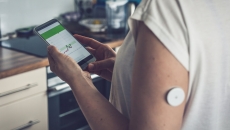Life Sciences
As AI use within healthcare advances, several factors need to be considered, from how the tech can enhance care delivery to potentially worsening healthcare inequity.
Employees of Maven will have access to WellTheory's platform for individuals with autoimmune diseases, including a collaborative care team and ongoing guidance.
The company's diagnostics platform helps predict how patients will respond to immunotherapy.
More hospitals are coming into the fold in the coming months.
Also, Canon Medical and Olympus are collaborating on endoscopic ultrasonography.
The Wearables for Metabolic Health study will use Fitbit behavioral and biometric data and laboratory tests to attain insights into metabolic health and disease prevention.
Also, Qure.ai has received its 13th FDA approval for its AI-based medical imaging software.
The "first aid information shelves" will include instructional videos from authoritative health organizations and be the first search results seen by users.
AI-powered dental practice technology company Peerlogic and AI-enabled clinical trial design company QuantHealth also scored investments.
The proposed class action lawsuit alleges the pharmacy benefit manager worked with rival PBMs to exert its influence in the market and fix reimbursement rates and fees.






